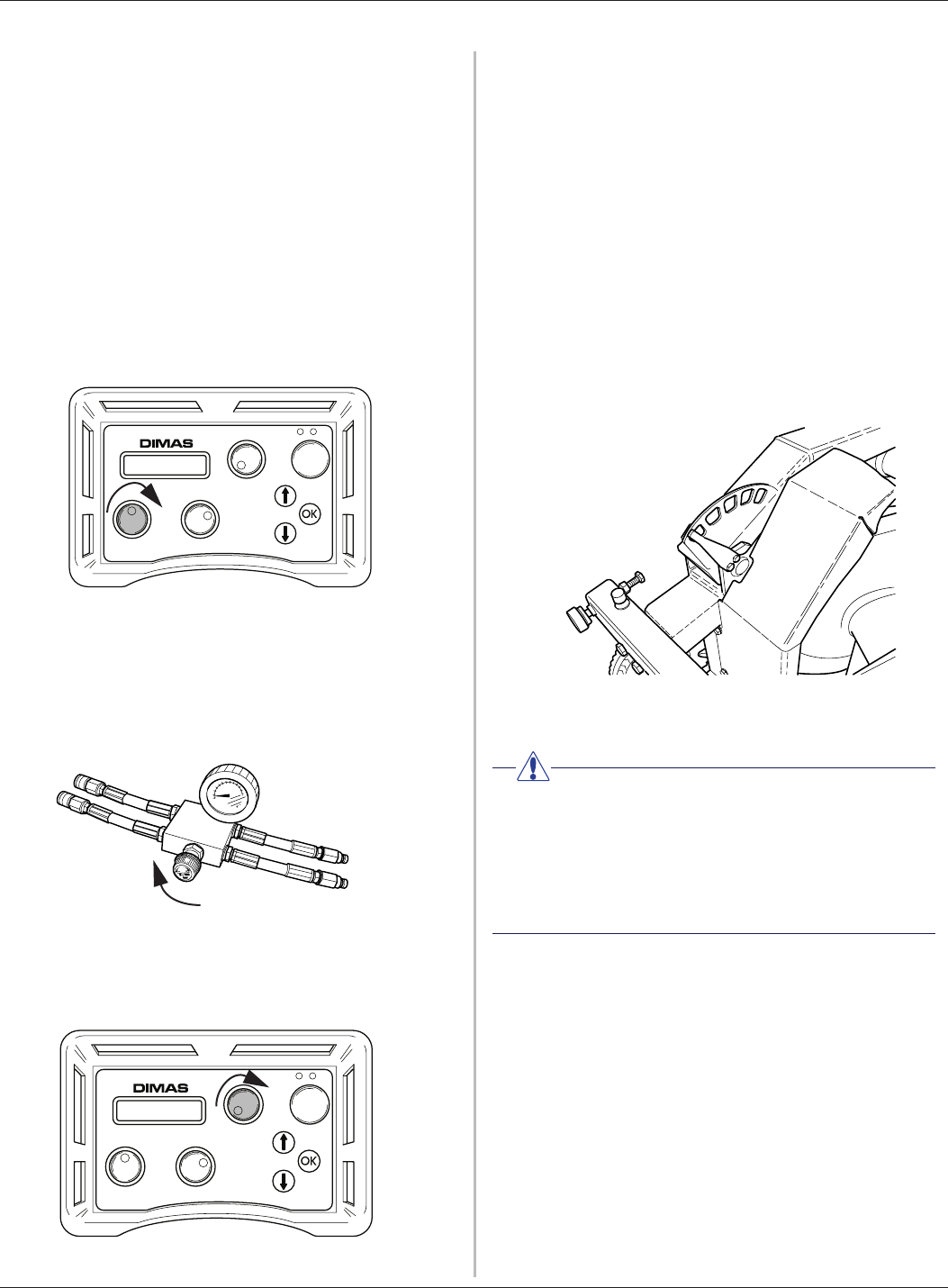
14 - English
Operation Operator's Manual CS 2512
Operation
Sawing
When all the equipment has been assembled cutting can
start. In order for the saw to cut as efficiently as possible it
should be started as follows:
1. Close the valve on the pressure reduction block by
turning the knob anti-clockwise until it stops and then
two turns back.
2. Start the hydraulic unit.
3. Set the feeding flow on the unit to max by turning the
control on the remote control clockwise.
4. Tension the wire by carefully turning the knob on the
pressure reduction block clockwise until the wire is
tensioned sufficiently. Make sure to always check that
the wire is seated correctly in all the wheels on the
saw.
5. Start the motor's rotation by turning the control for
motor rotation on the remote control clockwise.
6. Carefully increase the motor speed by turning the
control for motor rotation. A suitable working pressure
when cutting usually lies between 100 and 130 bar, but
varies depending on how many wheel sets are used in
the magazine, how much wire is in use and the
hardness of the material to be cut.
7. As the material is cut away the working pressure
drops, which is shown on the display, and the
magazine must then be tensioned. Do this by turning
the knob on the pressure reduction block clockwise.
8. The output tension on the magazine is shown by an
indicator on the machine (shown in the min position).
When the magazine cylinder is fully tensioned, the
machine must be stopped and the wire must be wound
around a new wheel set. Then continue to cut as
above.
CAUTION
In order for the water to cool the wire as
intended during cutting, it is essential to adjust
the position of the cooling water as the
material is cut. Remember to always stop the
machine when you do this.
Finishing sawing
1. Lower the speed on the wire and allow the motor to
stop completely.
2. Fold up the magazine arm.
3. Disconnect the incoming mains cable from the
hydraulic unit.
4. Disconnect the hydraulic hoses and the water hose
from the saw unit.
5. Other steps are done in the reverse order.
